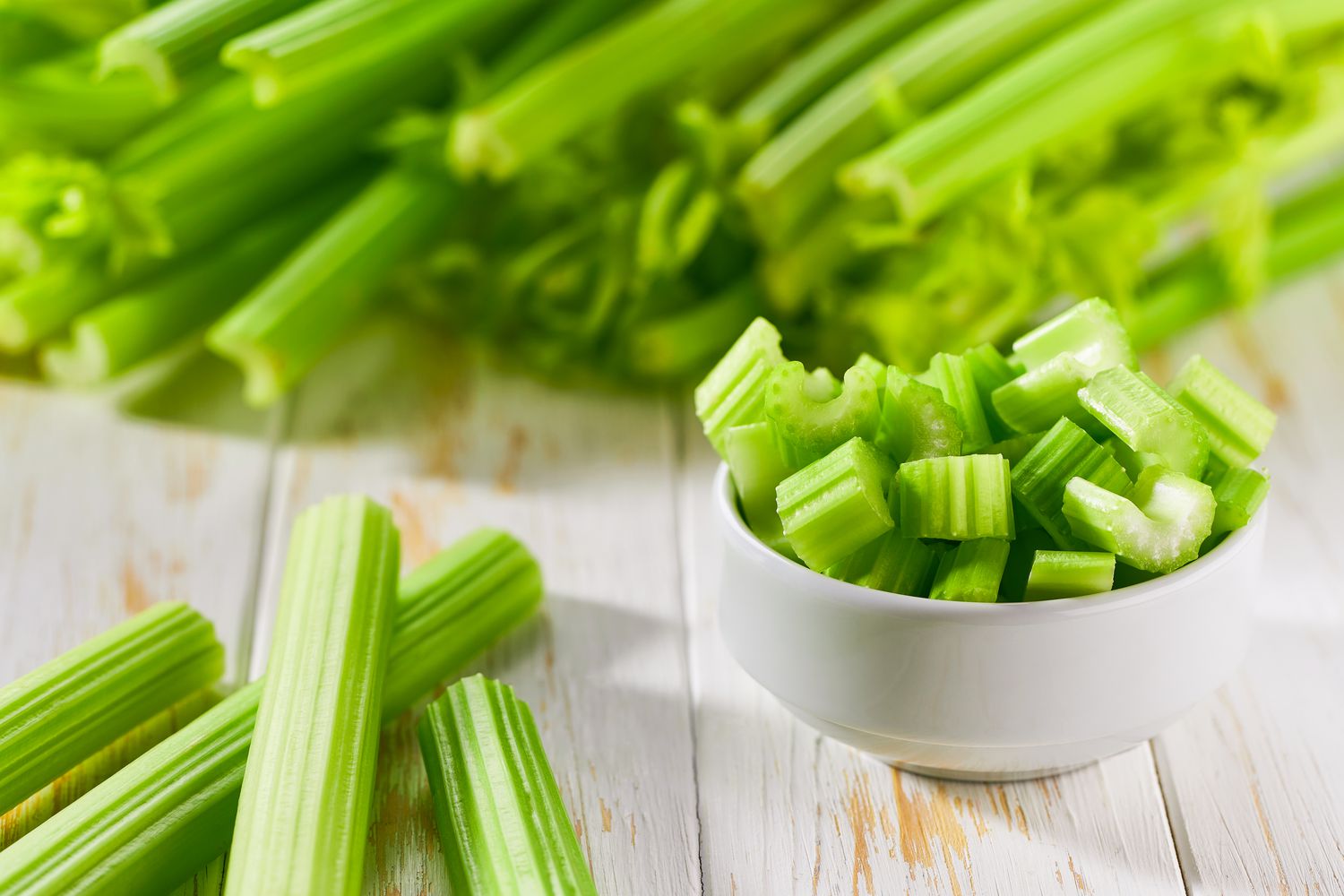Key Points
Adding celery to your diet is an easy way to stay hydrated, nourished, and boost overall wellness.Celery provides fiber, vitamins, minerals, and antioxidants that support bone health, blood pressure, and immune function.Whether eaten whole or juiced, celery is a versatile, low-calorie food that fits into many meals and snacks.
Celery is one of those vegetables that everyone recognizes, but we often tend to overlook. Who gets excited about celery? It gets little fanfare when it shows up in soups, on crudité platters, and in the occasional juice. But nutrition experts say there’s a lot more to celery than a crunchy bite that’s low in calories, and that it deserves a regular spot in your diet. You might be surprised by what they have to say about this humble vegetable.
Dawn Jackson Blatner, RDN, CSSD, is a sports dietitian specializing in joyful nutrition for optimal health
Maya Feller, MS, RD, CDN, founder of Brooklyn-based Maya Feller Nutrition, is a registered dietitian nutritionist and author of Eating from Our Roots: 80+ Healthy Home-Cooked Favorites from Cultures Around the World
Debunking the ‘Negative Calorie’ Myth
For years, celery has been labeled a “negative calorie food,” supposedly requiring more energy to chew and digest than it provides. Both Maya Feller, MS, RD, CDN and Dawn Jackson Blatner, RDN, CSSD agree: that’s a myth. While celery is extremely low in calories—one medium stalk has fewer than six—it still contributes some energy. A small study did find that digestion burns most of those calories, but not all of them. In short: celery is low-calorie, but it isn’t calorie-negative.
The Nutrients and Benefits of Celery
Fiber and hydration: A serving of celery (about three medium stalks) delivers around two grams of fiber and nearly half a cup of water, making it both filling and hydrating.
Vitamins and Minerals: Celery is an excellent source of vitamin K, important for bone health and blood clotting, and provides folate (cell health), potassium (blood pressure support), and vitamin C (immune function and collagen production).
Antioxidants: Celery also contains antioxidant compounds, including apigenin, luteolin, caffeic acid, and ferulic acid. Research suggests these plant chemicals may have anti-inflammatory effects.
While Feller points out that celery won’t dramatically transform your health, it can play a steady, supportive role in a balanced diet.
Hydration Help
Celery is about 96 percent water, so eating it does contribute to daily hydration. Three stalks equal roughly four ounces of water, which is meaningful. Pair that with its electrolytes, and you’ve got a crunchy, hydrating snack.
A Few Things to Watch For
Celery does contain natural sodium, but in small amounts balanced by potassium. If you’re taking blood thinners (vitamin K can interfere with them) or certain thyroid medications, Feller advises checking with your healthcare provider before going all in.
Celery Juice vs. Whole Celery
Celery juice had its wellness moment recently, and the verdict is mixed. Juicing strips away much of celery’s fiber but concentrates certain electrolytes like sodium, potassium, magnesium, and calcium. Blatner notes this makes it a natural electrolyte drink—potentially comparable to sports powders—while Feller cautions that some people may experience digestive side effects (like too many trips to the bathroom). The consensus: celery juice can be a refreshing addition, but eating the stalks offers more fiber and satiety.
5 Easy, Delicious Ways to Eat More Celery
Beyond munching on raw sticks, celery shines in the kitchen. Try these ideas:
Stir-fries: Toss with cashews and a splash of chili oil, then top with an egg and rice.
Soups and stews: Use it as a base for flavor while cutting back on added salt.
Snack plates: Pair with hummus, guacamole, or nut butter.
Classic ants on a log: Celery + nut butter + raisins = a snack with protein, healthy fat, carbs, and hydration.
Smoothies: Add a stalk to your favorite smoothie for freshness and extra electrolytes.
The Healthy Conclusion—Celery Is a Solid Choice
Celery won’t revolutionize your health, but it’s crisp, hydrating, nutrient-rich, and versatile. As Feller puts it, “People just don’t eat enough plants.” Celery offers an easy way to add another vegetable—whether in a stir-fry, juice, or as a crunchy snack.

